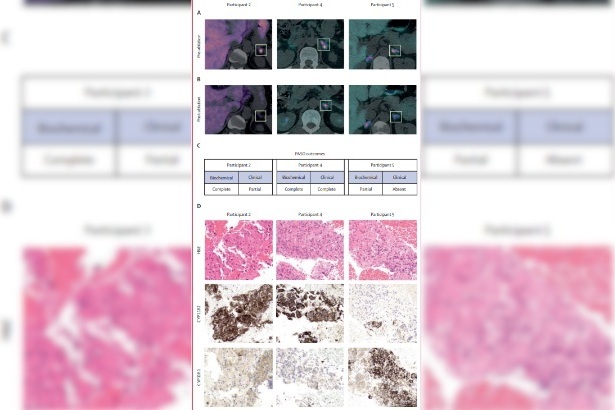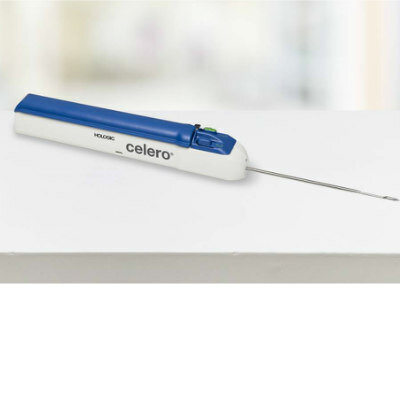Endoscopic Ultrasound-Guided Procedure Could Transform Blood Pressure Management
|
By HospiMedica International staff writers Posted on 13 Feb 2025 |

Primary aldosteronism (PA) is a hormonal disorder that causes high blood pressure in approximately one in 20 patients with hypertension but often goes undiagnosed and untreated. In this condition, benign nodules in the adrenal glands produce excessive aldosterone, a hormone that elevates blood pressure by increasing salt levels in the body. Patients with PA often do not respond to standard blood pressure medications, putting them at higher risk for heart attacks, strokes, and kidney failure. Until recently, the only effective treatment for PA was the surgical removal of the affected adrenal gland. However, this procedure requires general anesthesia, a hospital stay, and weeks of recovery, leading many patients to remain untreated. Now, researchers have introduced a groundbreaking, minimally invasive treatment called Triple T, which offers new hope for millions of people suffering from high blood pressure caused by PA. This treatment, which could revolutionize the management of blood pressure, was published in The Lancet.
Triple T, or endoscopic ultrasound-guided radiofrequency ablation, has shown remarkable potential in clinical trials and could serve as a viable alternative to surgery. This innovative treatment targets and destroys malfunctioning adrenal nodules without removing the adrenal gland, offering a faster, safer, and less invasive solution. The procedure utilizes a combination of radiofrequency or microwaves and ultrasound to deliver precise heat to the adrenal nodule. A fine needle is inserted through the stomach, guided by real-time ultrasound imaging, to reach the adrenal gland, where short bursts of heat are applied to destroy the problematic tissue. This technique minimizes damage to surrounding healthy tissues, ensuring a targeted approach. The entire procedure takes just 20 minutes and requires no incisions.
Triple T’s effectiveness is due in part to advancements in diagnostic imaging, which now use molecular dyes to precisely locate even the smallest adrenal nodules. These innovations, coupled with the ability to directly target nodules near the stomach, have enabled this minimally invasive approach. In the feasibility study known as the Feasibility study of radiofrequency endoscopic ABlation, with ULtrasound guidance (FABULAS) trial, a team of doctors, including researchers from Queen Mary University of London (QMUL, London, UK), tested Triple T on 28 PA patients and achieved excellent results. The procedure was both safe and effective, with most patients experiencing normalized hormone levels within six months. Many were able to discontinue all blood pressure medications, and the condition did not return. The success of the FABULAS trial has led to the initiation of a larger study, WAVE, which will compare Triple T to traditional surgery in 120 patients, with results expected in 2027.
“This less invasive technique could be widely offered in endoscopy units across the UK and internationally,” said Professor Stephen Pereira, Chief Investigator of FABULAS, emphasizing the potential global impact of Triple T.
Latest Critical Care News
- Mass Manufactured Nanoparticles to Deliver Cancer Drugs Directly to Tumors
- World’s Smallest Pacemaker Fits Inside Syringe Tip

- AI-Powered, Internet-Connected Medical Devices to Revolutionize Healthcare, Finds Study
- Starfish-Inspired Wearable Tech Enables Smarter Heart Monitoring
- AI Eye Scans Could Help Identify Heart Disease and Stroke Risk
- Digital Heart Twin Improves Diagnosis and Treatment of Cardiac Arrhythmias
- First-Of-Its-Kind AI-Powered Probability Scoring System Assesses Heart Failure with Preserved Ejection Fraction
- AI-Assisted Colonoscopy Detects More Polyps but Has Modest Effect on Cancer Risk
- Wearables Could Reduce Need for Continuous Blood Thinners in Patients with Atrial Fibrillation
- AI Model Provides Real-Time Sepsis Risk Alerts for Improving ICU Patient Survival
- AI Algorithm Improves Intravenous Nutrition for Premature Babies
- Smart Mirror Generates AI-Powered Health Insights by Analyzing Facial Blood Flow
- Painless Diabetes Patch to Replace Needle Pricks

- Sensory T-Shirt Monitors Patient’s Vitals After Urological Surgery for Cancer
- Super-Sensitive Radar Technology Warns of Serious Heart Issues
- Thermal Imaging Could Accurately Track Vital Signs for Early Disease Detection
Channels
Critical Care
view channel
Mass Manufactured Nanoparticles to Deliver Cancer Drugs Directly to Tumors
Polymer-coated nanoparticles loaded with therapeutic drugs hold significant potential for treating cancers, including ovarian cancer. These particles can be precisely directed to tumors, delivering their... Read more
World’s Smallest Pacemaker Fits Inside Syringe Tip
After heart surgery, many patients require temporary pacemakers either to regulate the heart rate while waiting for a permanent pacemaker or to support normal heart rhythm during recovery.... Read more
AI-Powered, Internet-Connected Medical Devices to Revolutionize Healthcare, Finds Study
A new study suggests that artificial intelligence (AI)-powered, internet-connected medical devices have the potential to transform healthcare by enabling earlier detection of diseases, real-time patient... Read morePatient Care
view channel
Portable Biosensor Platform to Reduce Hospital-Acquired Infections
Approximately 4 million patients in the European Union acquire healthcare-associated infections (HAIs) or nosocomial infections each year, with around 37,000 deaths directly resulting from these infections,... Read moreFirst-Of-Its-Kind Portable Germicidal Light Technology Disinfects High-Touch Clinical Surfaces in Seconds
Reducing healthcare-acquired infections (HAIs) remains a pressing issue within global healthcare systems. In the United States alone, 1.7 million patients contract HAIs annually, leading to approximately... Read more
Surgical Capacity Optimization Solution Helps Hospitals Boost OR Utilization
An innovative solution has the capability to transform surgical capacity utilization by targeting the root cause of surgical block time inefficiencies. Fujitsu Limited’s (Tokyo, Japan) Surgical Capacity... Read more
Game-Changing Innovation in Surgical Instrument Sterilization Significantly Improves OR Throughput
A groundbreaking innovation enables hospitals to significantly improve instrument processing time and throughput in operating rooms (ORs) and sterile processing departments. Turbett Surgical, Inc.... Read moreHealth IT
view channel
Printable Molecule-Selective Nanoparticles Enable Mass Production of Wearable Biosensors
The future of medicine is likely to focus on the personalization of healthcare—understanding exactly what an individual requires and delivering the appropriate combination of nutrients, metabolites, and... Read more
Smartwatches Could Detect Congestive Heart Failure
Diagnosing congestive heart failure (CHF) typically requires expensive and time-consuming imaging techniques like echocardiography, also known as cardiac ultrasound. Previously, detecting CHF by analyzing... Read morePoint of Care
view channel
Handheld, Sound-Based Diagnostic System Delivers Bedside Blood Test Results in An Hour
Patients who go to a doctor for a blood test often have to contend with a needle and syringe, followed by a long wait—sometimes hours or even days—for lab results. Scientists have been working hard to... Read moreBusiness
view channel
Expanded Collaboration to Transform OR Technology Through AI and Automation
The expansion of an existing collaboration between three leading companies aims to develop artificial intelligence (AI)-driven solutions for smart operating rooms with sophisticated monitoring and automation.... Read more

















